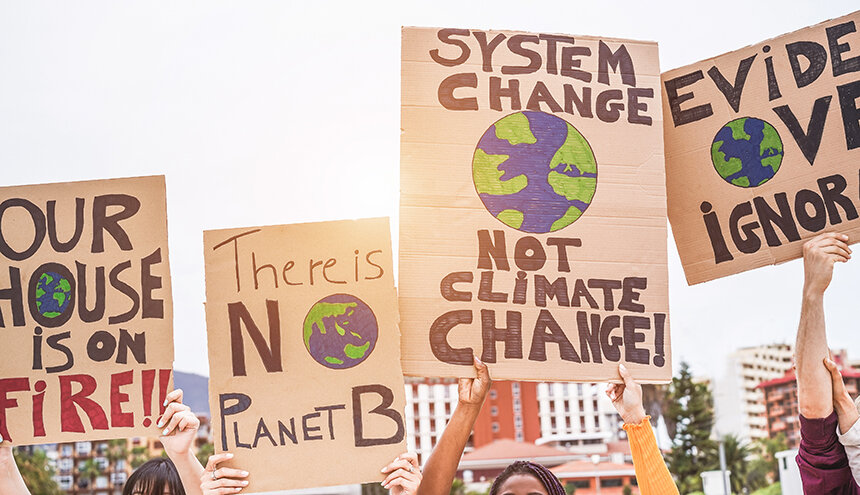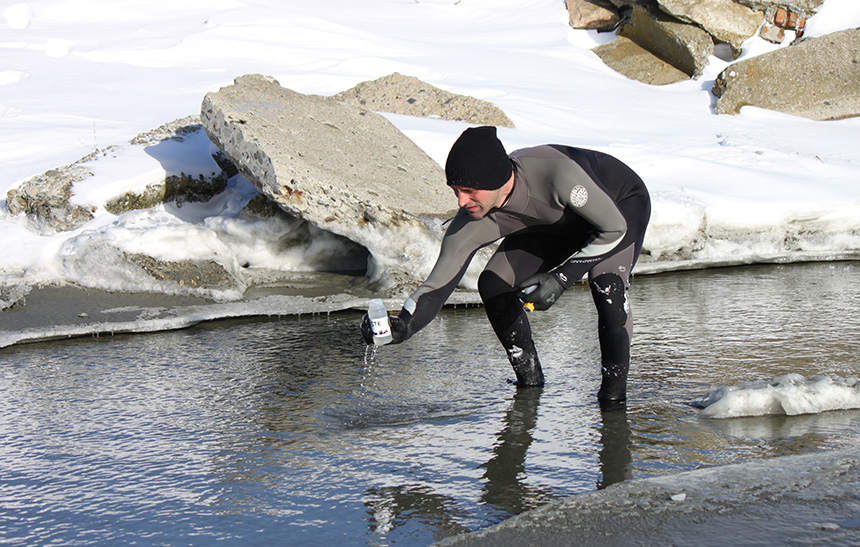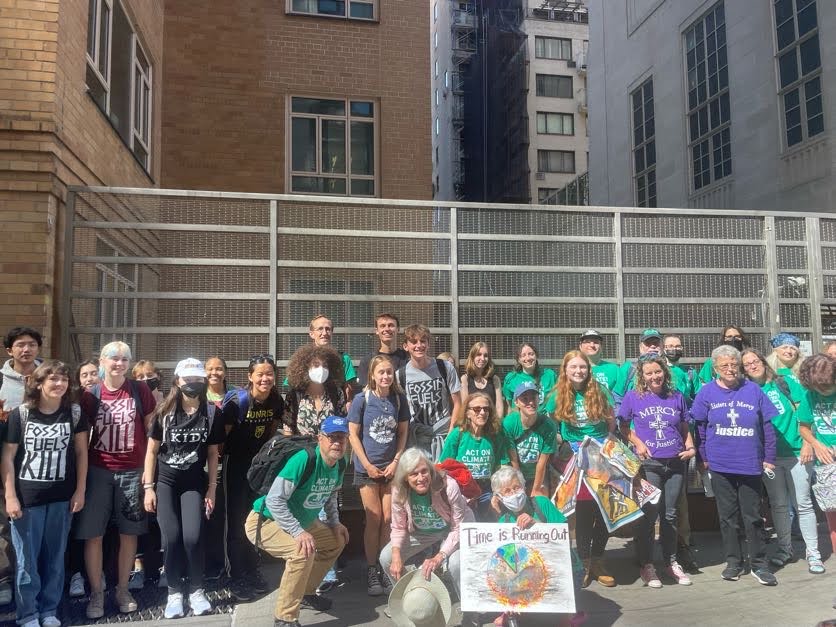Opponents Rally Around Offshore Drilling’s Risks
March 5, 2018
PROVIDENCE — An afternoon of rallies and protests against a federal proposal to open up the East and West coasts to offshore drilling began with the news that Gov. Gina Raimondo had her much-anticipated meeting with Interior Secretary Ryan Zinke.
“I made it crystal clear that the people of Rhode Island were vehemently opposed to offshore drilling,” she said Feb. 28 to a capacity crowd in the State Room at the Statehouse.
Raimondo sought a face-to-face meeting with Zinke after they spoke by phone Jan. 12. That call was of one of several made by governors hoping to convince Zinke to reconsider the Trump administration’s proposal to open up the outer continental shelf to offshore drilling. At the time, Zinke promised to visit Raimondo in Rhode Island, much as he did in Florida in early January when he exempted the state from the proposal.
Raimondo met with Zinke at his office Feb. 25 while in Washington, D.C., for the national governors conference. She told the interior secretary oil drilling would cost jobs, hurt lives, and lead to oil spills.
“And we are going to go down swinging before that happened,” Raimondo said. “The science is on our side, the facts are on our side, the people of Rhode Island are on our side, and we have to stick together to prevent this.”
Zinke listened to her concerns but stopped short of granting Rhode Island an exemption.
At the Feb. 28 rally and press event, Rep. David Cicilline, D-R.I., spoke of his bill to ban offshore drilling and exploration off the New England coast. Every U.S. senator and representative from New England has endorsed the legislation.
“We will decide what happens in the waters of our state, not fossil-fuel companies, not Big Oil, and not this administration,” Cicilline said.
Sen. Dawn Euer D-Newport, and Rep. Lauren Carson, D-Newport, have introduced bills (S2116, H7250) that prohibit any offshore oil infrastructure within state waters, as well as on the mainland.
“We came up with the idea that we would disincentive oil drilling off of Rhode Island by disabling their ability to bring any oil into this state,” Carson said.
No hearing dates have been set for the bills.
The event delivered bipartisan support, as Warwick Mayor Scott Avedisian said he was supporting a resolution before his City Council opposing offshore drilling.
The press event and protests were organized by Save The Bay, the Environmental Council of Rhode Island and the Conservation Law Foundation (CLF).
Amy Moses, director of CLF’s Rhode island office, said drilling, the resulting pollution and seismic testing would threaten the endangered North Atlantic right whale and ecologically rich underwater habitats such as Georges Bank and Cashes Ledge.
She said CLF is prepared to fight offshore drilling “every step of the way, including going to court.”
Some 100 protesters walked from the Statehouse after the press event to Orms Street for a rally outside the Marriott, where a public hearing was being held for the offshore drilling plan. The four-hour hearing was sponsored by the Bureau of Ocean Energy Management (BOEM) and was criticized for lacking pubic oration. It was referred to as a “faux hearing” by many who wanted robust discourse. Activists included high-school, middle-school and college students, environmentalists, and concerned residents.
Inside the downtown hotel, a banquet room was set up with tables and charts, and BOEM engineers and scientists were available to discuss segments of the project.
About an hour into the meeting, the floor was commandeered by climate activists Tim DeChristopher and Justin Boyan of Climate Action RI. More than 40 speakers took turns making statements against the drilling proposal.
“If you’ve come to Rhode Island to talk about offshore drilling you’ve come to the wrong state,” Rep. Aaron Regunberg, D-Providence, said, using the repeat-response method known as the “people’s microphone.”
BOEM officials were aware the protest would occur and allowed it to proceed uninterrupted for about 90 minutes.
Activist and former pastor Duane Clinker called the hearing process “a corruption of democracy.” Public comment, he said, is being ignored and open discussion is being stifled.
“We don’t get a sense of our power. These bogus hearings are meant to convince us of their power,” Clinker said.
“I don’t want the beaches to turn black because of oil spoils. I don’t want the birds and fish to die.” said Carmen Boyan, a Rhode Island seventh-grader. “Let’s put windmills in the ocean instead.”
“People come to visit the Ocean State, not the Oil Slick State,” said Warwick resident Lori Sharon, who spoke of the threat to sea turtles, seals, dolphins, and whales.
Jen Long gave “Moby Dick” a contemporary rewrite.
Those who stayed long enough got some answers from BOEM, as its chief environmental officer, William Brown, addressed the crowd and took questions.
Public comments can be filed until March 9.
Categories
Join the Discussion
View CommentsRecent Comments
Leave a Reply
Related Stories
Your support keeps our reporters on the environmental beat.
Reader support is at the core of our nonprofit news model. Together, we can keep the environment in the headlines.
We use cookies to improve your experience and deliver personalized content. View Cookie Settings




Thank you for your position on ‘natural energy’ and against fossil fuel drilling off our shore.
We need the same kind of leadership from you, to stand up for us and against the proposed LNG facility ,on our interior city coast line in South Providence.
Talk the talk, walk the walk thru South Providence! Weather it is drilling or storing LNG, its all bad for the future of RI.!
Thank you for your leadership!